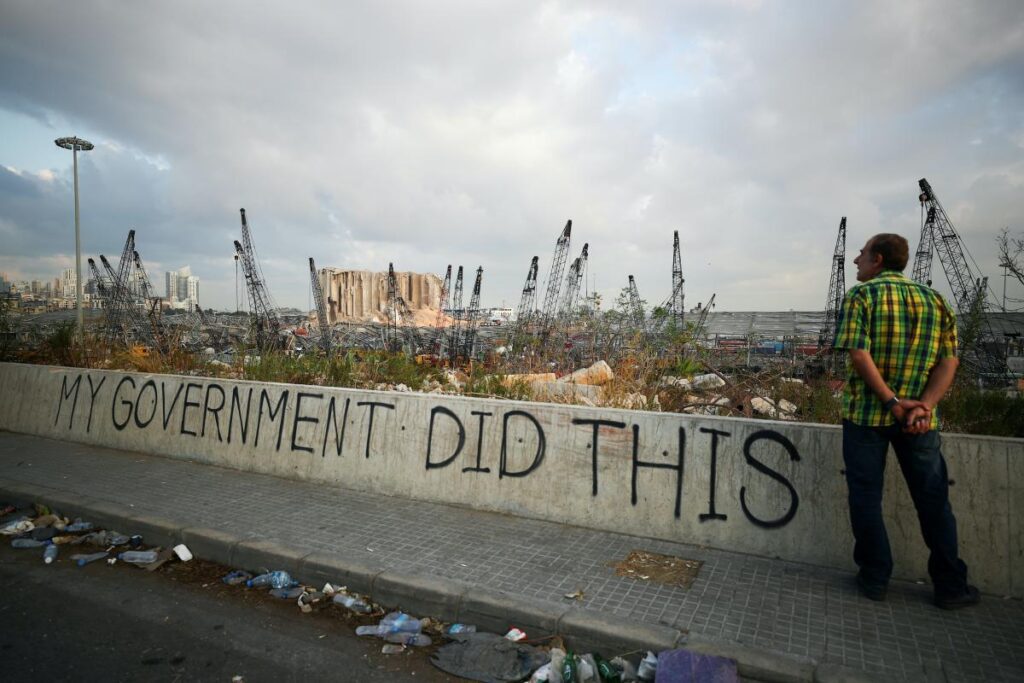Reeling from back-to-back crises and a devastating Israeli war on the country, Lebanon is in dire need of funds and support to address its vast humanitarian and reconstruction needs and establish sustainable economic models.
With the recent ceasefire agreement – albeit repeatedly violated form the Israeli side – and the formation of the new government, many are optimistic about Lebanon’s prospects of unlocking a number of aid packages that would support its short-term needs.
How effective international aid would be in supporting the country’s economic pathways, however, will depend on a number of crucial factors.
Is Hezbollah’s Disarmament a Key Factor?
Lebanon’s Foreign Minister Youssef Rajji underscored that Hezbollah’s disarmament remains a precondition for receiving international aid.
Recently, Hezbollah has shown signs of leniency and perceived openness to negotiations surrounding the process. This was apparent in Hezbollah Member of Parliament Hassan Fadlallah’s latest remarks where he mentioned that the group is ready to enter talks with the Lebanese government on a national defence strategy, emphasizing first the removal of Israeli troops from Lebanon.
Lebanon’s ability to access international support is also related to political developments in Syria and the fate of sanctions on the country after the arrival of the new government there. This wouldfurther unlock the potential of bilateral cooperation between the two countries and prospectiveregional economic projects in areas of transit, fuel transport, and economic relations.
As matters stand, the answer to whether Hezbollah’s disarmament process stands as a crucial factor for Lebanon’s ability to acquire international aid is nuanced and depends on a multiplicity of factors, chief of which is the source of funding.
International actors close to Israel, primarily the United States, are more likely to link foreign aidto Lebanon with Hezbollah’s disarmament, whereas actors that have a more flexible and context-sensitive relationship with Lebanon that recognize the complexity of the country’s political sphere, such as France, are likely to have a less rigid approach to aid.
Packages from supranational groups such as the European Union, on their part, would likely depend on the tug-of-war between these different approaches.
Negotiations with the International Monetary Fund
Lebanon’s negotiations with the International Monetary Fund (IMF) have faced repeated obstructions over the last few years. Representatives from the Lebanese side, highly entrenched in politico-banking interests such as MPs Ibrahim Kanaan and George Adwan, refused to accept key conditionalities of the fund.
Among such conditionalities are the amendment of Lebanon’s banking secrecy law and the implementation of bank restructuring plans. Such reforms would potentially allow to reveal years of financial schemes – such as which political elites funneled their assets outside the country when the crisis hit in 2019 as the Capital Control law was set back – and usher in the needed sectoral restructuring that would allow for a more transparent system.
More recently, mainstream news platforms affiliated to banking elites such as MTV have began campaigning against amending the banking secrecy law, while at the same launching smear campaigns against independent platforms who do reveal the elites’ financial scheming, such as Megaphone and Daraj.
Today, as Lebanon’s humanitarian needs remain sky-high, an agreement with the IMF remains one of the key potential aid avenues. According to LBCI, Lebanon was notified that if its delegation attend the IMF meetings in Washington on April 21 without Parliament having passed the amended banking secrecy law and the bank restructuring bill, the freeze on a full IMF program will remain. LBCI’s report also highlights that such a program could unlock Arab and international investments into the country.
As such, in order to unlock such well-needed funds, the new Lebanese government will have to stand firm against the interests and scheming of the country’s commercial banks and their affiliated politicians, else it remains captive to one of the worst forms of economic cronyism in the world.
Towards Economic Stability
While foreign aid could be the small push that Lebanon needs to kickstart a more holistic economic rejuvenation process, the country is in dire need of a fundamentally different political economy and overall social contract.
The new system will have to break Lebanon’s dependency on foreign aid, which remains an unsustainable source of state income and a potential hinderance to more healthy governance structures, and unlock national sources of state income generation.
Establishing a more equitable, progressive taxation system remains key in that regard. Lebanon has long relied on indirect taxation, which disproportionately impacts low- and middle-income population groups, while disregarding the potential of progressive taxes, such as wealth taxes and more progressive land taxes, which would target the well-off and provide for a more equitable economic system.
Another key aspect in that regard is revitalizing Lebanon’s local production prospects, particularly in agriculture and industry, which remain critically underfunded and disregarded. The Ministry of Agriculture, for example, was only allocated 0.31% of the total budget law for 2024, and the Ministry of Industry much less at 0.02% of the total budget law for that year.
Enhancing public spending on productive sectors, combatting rent-seeking behaviors, and enhancing local consumption and self-sufficiency prospects are some of the key directions that Lebanon needs to have a more equitable, protective, promotive and sustainable political economy.
